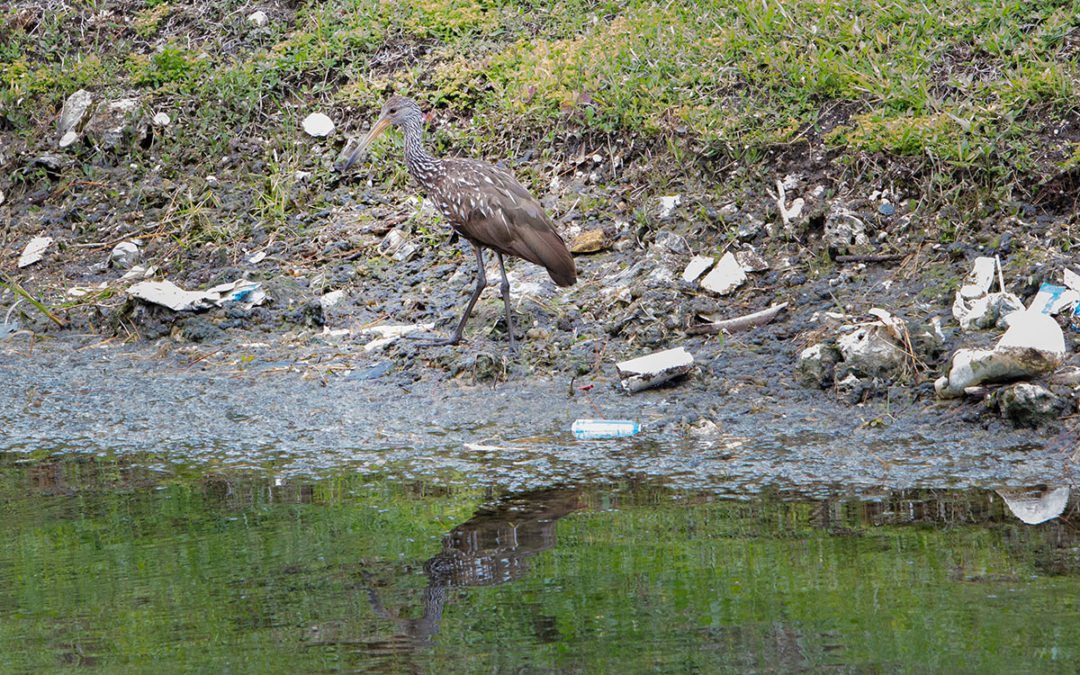Early summer in Southwest Florida means spiking water pollution. Starting in late May, subtropical rains sweep a winter’s worth of discards into area waterways.
Near the Lee/Collier county border, the gauge at the Corkscrew Water Treatment Plant logged 7.06 inches of rain the first five days of June. Compare that to the 6.61 inches recorded the first five months of the year.
This first flush, as Calusa Waterkeeper John Cassani calls it, carries all the crud that’s built up during the dry season. Accumulated lawn chemicals, vacant lot litter, roadway oil and pet poop all wash off the landscape, sometimes in fish-killing or flow-blocking volume, as several recent examples in both counties, illustrate.
Last week, a Big Cypress Basin crew was dispatched to clear a Naples canal so trashed a resident sent photos to the Daily News.
And in Fort Myers, silty runoff spread out into a polluted plume extending some 40 acres downstream in the Caloosahatchee, resulting in two construction site stop work-orders and emergency repairs to a storm main. The Florida Department of Environmental Protection is investigating, said spokeswoman Alexandra Kuchta.
Cassani and other advocates worry that the already challenged environment will continue to be shorted, as government attention and resources remain focused on coronavirus. Last week, the Trump administration issued an executive order that would allow companies seeking permits to bypass laws including the Endangered Species Act and the National Environmental Policy Act as the country emerges from stay-at-home orders.
Continue Reading

























